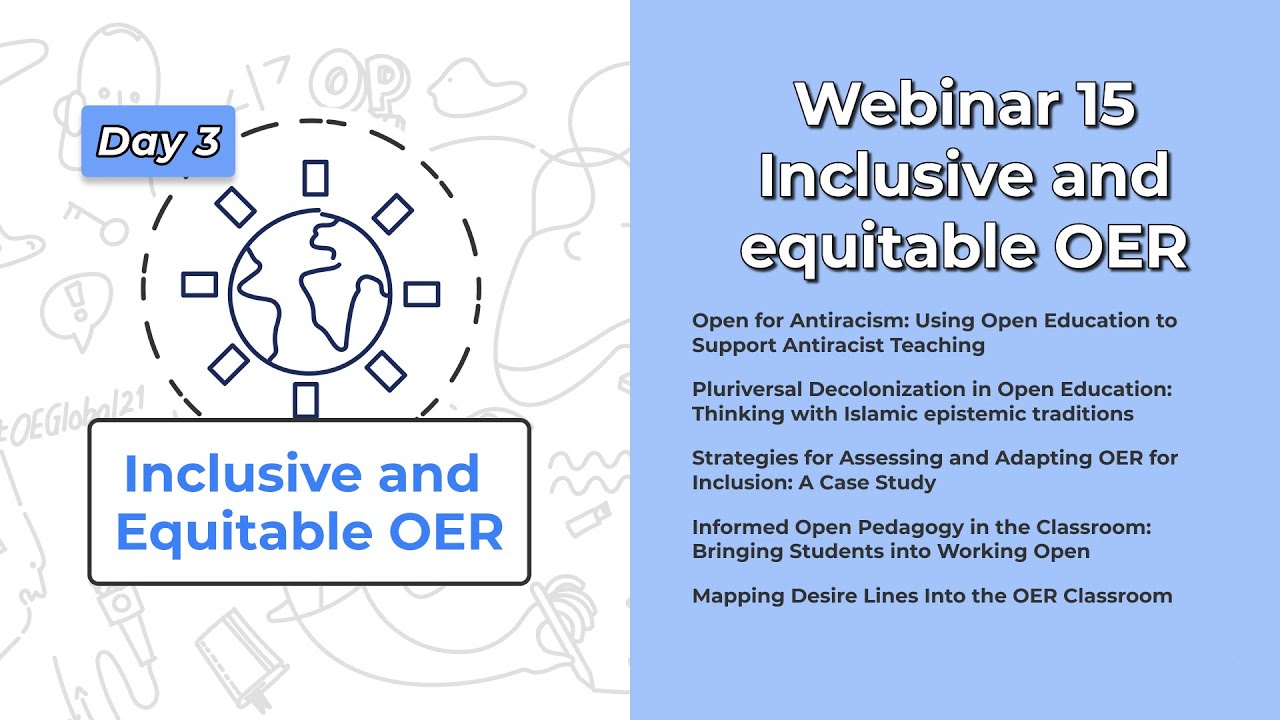Urooj Nizami (Kwantlen Polytechnic University), Elliot Montpellier (University of Pennsylvania)
This presentation calls attention to a lack of diversity of epistemic traditions embedded and embodied in the open education (OE) movement. We discuss religious knowledge traditions as a pivotal set of epistemologies that are too often excluded from conversations around openness. Perhaps more than any other tradition in the present, Islamic knowledge practices are routinely marginalized, effaced, and criminalized.
At the same time, increasingly, critical perspectives in OE studies have surfaced the acute need for embracing pluralistic views within our own community of practice (Bali and Cronin et al., 2020). Paramount among these have been a committed - but still woefully inadequate - focus on Indigenous knowledge. In this persistent imperative to decolonize openness, we call for more robust engagement with religious diversity, a lacuna in our field that is evidenced even in this year’s conference, which centers UNESCO’s Recommendation on Open Educational Resources (OER). These policies and action points make no mention of religion in their focus on diversity and inclusivity.
In our presentation, we frame the call for greater attention to religious life as a core aspect of engaging the whole person in pedagogical processes (hooks, 1994) and in decolonizing open educational practices. These are grounded in practical and theoretical terms.
Long legacies and persistent forms of colonialism, extractive capitalism, orientalism, war, and other forms of oppression affect Muslim communities globally. These intersect with many kinds of marginalization that are more widely discussed in OE circles, yet epistemologies that ground open initiatives often devalue or otherwise elide religious life (Piron, 2017). We discuss convergences between existing and customary practices in the Muslim world and current trends in OE. We argue that open education practices that are inclusive of other epistemologies such as Islamic ones (here too there is no singular tradition) are important components of decolonial work towards equitable education.
Extended abstract: OE_Global_2021_paper_120.pdf 📄
Webinar Information
This presentation is part of Webinar 15 Inclusive and equitable OER taking place in your local time → .
Webinar Access (registered conference participants only):
![]()
![]() Go to Webinar 15
Go to Webinar 15
UNESCO OER Action Area: Inclusive and equitable OER
Language: EnglishSee the other presentations that take place in this webinar.
Presentation Recording
Participate
Before the webinar the authors will be asked to reply below with links to their presentation materials, related videos, and other relevant links, as well as prompts for discussion here.
For anyone that missed the live session, an archive will be posted here as soon as possible.
Conference participants are urged also to reply below with questions, comments for the presenters or to share related resources.
